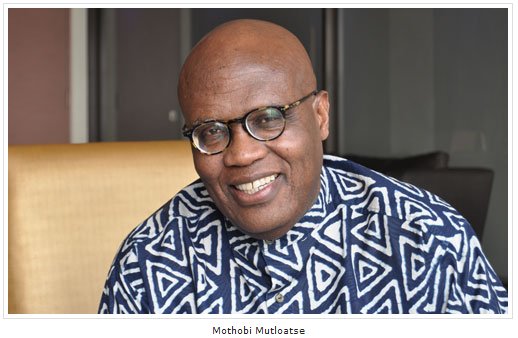Many books published, but where are the readers in South Africa?
A literary perspective on the publishing landscape and how the industry struggles to attract readers in order to be viable
By Edward Tsumele
In the recent few years, anyone who has been following literary output in South Africa, especially books both fiction and non-fiction, written by new authors, both self-published and those choosing the mainstream publishing route would agree that the publishing industry has never been this vibrant. The literary output has been phenomenal in fact.
That is clearly well and good, but the problem is, there are no takers for these great works of literature, to an extent that any visitor from another planet landing in South Africa today and keen to survey the publishing literary industry would conclude that this is a country occupied by people who cannot read or are allergic to literature. And the reasons are quite complex, some of them predicated in history and the question of educational opportunity exclusion. But now we are almost 27 years into a free country and democratic country where opportunities for educational advancement are fairly available to every citizen.
And therefore the question is, could we justifiably continue to use the past as an excuse for this lack of appetite for the written word?
However the fact are these. South Africa does not have a single literary agent, and these are the people whose role is to facilitate a book to be published by a publisher, connecting publishers to good manuscripts. In the developed world, such as the UK or the US, literary agents are actually a significant sector of the publishing industry, and no author approaches a publisher with a manuscript in hand as that role is left to literary agents .The reason is simple. The publishing industry in South Africa is simply too small to accommodate literary agents, whose role in the publishing chain is more than just presenting a manuscript to a potential publisher, but also entails guiding the author in the writing process to make sure that the product that is presented to the publisher is commercially viable and publishable.
If you thought the fact that the country does not have a single literary agent is bad enough, more shocking is the fact that in South Africa, a best seller in fiction is a book that sells a mere 3000 copies, and a best seller in the non-fiction genre is a book that sells 5000 copies. And most of the most popular genres are political memoirs.
But of course, there are exceptions on both fiction and non-fiction categories with some books selling exceptionally well, even selling tens of thousands of copies. But these books finding traction with South Africans deal with particular subjects, and perhaps the public is telling our authors that they are not giving them the kind of literature that they want, and perhaps South African authors and publishers must reflect and think critically about the readers they want to reach and what the interest of those readers is when it comes to literary consumption.
For example, The President’s Keepers: Those Keeping Zuma in Power and out of Prison,a 2017 book by investigative journalist and author Jacques Pauw. The book is about allegedly corrupt and compromised power networks in the government of former President Jacob Zuma, a non fiction book dealing with politics selling tens of thousands of copies, and Spud by author, actor, playwright and producer, John van de Ruit a work of fiction also sold tens of thousands of copies.
Spud is a 2005 novel by van de Ruit. A comedic sometimes sad yet straight forward novel that captures the humor of life in boarding school, through the diary of John ‘Spud’ Milton. The book is written in the style of a diary. The story begins on the morning of Spud’s first day at a private boarding school, following his year and experiences with the often eccentric characters found in the school environment. The diary also follows Spud’s family life.
A sequel, titled Spud: The Madness Continues, was released in mid-2007. It details Spud’s second year of boarding school and trip to England paid by Wombat, his crazy grandmother.
In June 2009, the third book in the Spud series was released. Titled Spud: Learning to Fly. This book details Spud’s third year at a school based on Michaelhouse, where he is now back at school and Pike returns for Post-Matric years and is a prefect. Pike being made a prefect means the Crazy Eight are vulnerable and cannot do anything without getting in trouble.
The fourth and final book in the series, detailing Spud’s Matric year, was released August 2012, under the title Spud: Exit, Pursued by a Bear.[1]
After commercial success in South Africa (it won the 2006 Booksellers award), the United States saw a release of this book 2007. It is now available in North America.

Self published author, Dudu Busani-Dube’s Hlomu series is also an exception as it surpassed the benchmark for fiction, managing to sell more than 6000 copies for each series, and she achieved this without the marketing budget that often major publishers put into each book.
But the reality though is these are exceptions.
Recognising this anomaly in the publishing industry, there has been efforts mainly by non governmental organizations who initiated campaigns to get South Africa reading and fall in love with the local writers and their work, notably by the South African Book Development Council led by Elitha van der Sandt as Chief Executive Officer.

This organization, which receives financial support from the Department of Sports, Arts and Culture every year dedicates a week to get South Africans to read for leisure, evening using celebrities such as actress and TV personality Pearl Thusi as ambassadors. However as to whether these efforts have been successful is hard to say, without a follow up research on the impact of these initiatives.

Literary activist Kgauhelo Dube also started an initiative that would see celebrities read live to an audience in the townships, and one wonders as to what happened to the support that she was getting from the Department of Sports, Arts and Culture as that initiative was inexplicably and prematurely discontinued.
However veteran publisher Mothobi Mutloatse apportions some of the blame to this state of affairs to both mainstream media and the way the government treat the arts.

He argues for example that “there is paucity of quality journalism across radio, television and print, invariably relying on press statements, sponsored slots and soundbites.
“The arts, in particular, literature, are treated just like Cinderella. Even Finance Minister Tito Mboweni said zilch about C-U-L-T-U-R-E. Yes, that’s how it is spelled. Its meaning? Nobody reads anyway – the printed version that is. But digital, I admit. However, anyone can write what they like on social media even most of the time it is hearsay, to subvert the metaphor. For a population just a million and a half shy of 60 million, book buyers are fewer than the population of Johannesburg. Let an actuary work it out for us, to reveal the shocking state of a nation that spends more on booze than books. Achoo!,” Mutloatse,” complaints.









